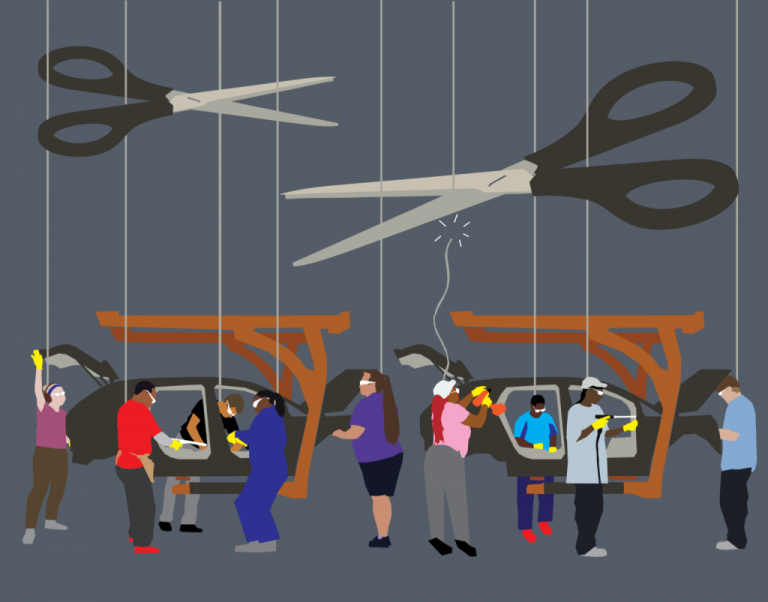Learning From UAW History And Taking Control Of Work Reductions
On the morning of October 29, autoworkers at Factory Zero, the GM electric vehicle plant in Detroit, received an urgent notification about the status of our two-month temporary layoff. For over 1,100 of us working in the plant, the news was that we would have to return to work on Thanksgiving week, only to be indefinitely laid off in January. As the bosses reduce production from two shifts down to one, the holidays are bringing uncertainty and precarity, rather than comfort and stability.
Over the past year, hundreds of workers at Factory Zero have already been impacted by rolling layoffs and termination of temporary workers, often announced without notice.















